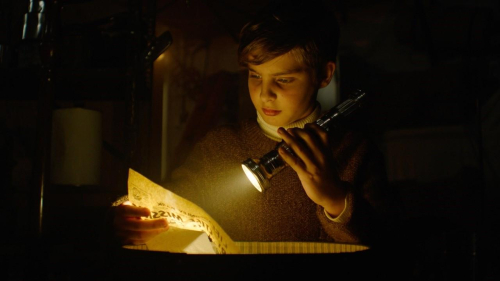
Giulio Biccari
MOVIE REVIEW
The Lost Sons (2021)
Not every film should be made. There are obvious reasons why Paul Fronczak’s story deserves to be told; and over the course of the film it becomes brutally clear why he needs to tell the story, and yet. Some stories people are just not ready to tell, not now and maybe not ever.
The outlines of the story have been in the public domain a long time. In 1964, Dora Fronczak was holding her one-day-old son, Paul, in her Chicago hospital room when a woman dressed as a nurse asked to take the baby. Dora handed her son over and he vanished, kidnapped from her arms and despite a huge manhunt never seen again. That is, until 18 months later, when a small boy was found abandoned outside a shop in New Jersey and left unclaimed despite huge publicity. The F.B.I. contacted the Fronczaks, who immediately claimed the toddler as their missing Paul, a miracle restored to them.
But he wasn’t. There was no definite proof until DNA testing became a thing when, over the objections of his parents and his wife, Paul Fronczak discovered that he wasn’t Paul Fronczak. But here is where things become so horrible that a story half-told is almost worse than silence. As Paul’s search for his birth identity is retold and deeply upsetting discoveries are made, people break down in tears left and right. That’s if they agree to appear at all; the inclusion of the three women at the end raises thousands more questions than they answer, not least because it’s sharply apparent how much they will not discuss. The blanket denial they, and others, cling to is shocking. If endless speculation is better than the truth, the truth must be very dark indeed. Mr. Fronczak was one of the film’s executive producers and clearly desperate to maintain control of the narrative; director Ursula Macfarlane equally clearly took the view that telling the story within these unbreachable parameters was enough.
In a way it is; among the interviewees are the student nurse who witnessed the kidnapping, children and grandchildren of policemen who worked the cases in the ’60s, and a woman who had an unforgettable encounter as a teenage babysitter. But Dora Fronczak herself, the mother of the stolen child who later made a decision that altered more than one life, is only onscreen briefly towards the end, in a deeply emotional conversation that still leaves too much unsaid. Four cinematographers shot both talking-head interviews and historical re-enactments in a crisp, bright style, while editor Andy R. Worboys brings the new footage together with archives from various news reports. The combination makes palatable the Fronczaks’ suffering, the pressure Paul found himself under, and the number of people who have been affected by the mystery for the last 57 years. But something good-looking is not always nice to eat.
As it stands, “The Lost Sons” is an extreme version of the existential questions all of us have to grapple with at some point: Who are we, separate to our DNA? Can families be made, not born? How do we handle the reality that not every birth is wanted, and that cruelty and violence are sometimes the reasons we are who we are? And if we can’t handle the sad truth that some stories will never have a happy ending, should we still try to tell them? It’s very frustrating that “The Lost Sons” does not know the answer.
Comments